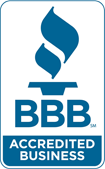
Legal Representation for Debtors Near Montgomery
Most of us cannot afford to have our bank accounts garnished. This is one of the more dangerous threats that a debt collector can make. It can be stressful to wonder if the garnishment will affect your ability to pay your rent or transportation costs, among other things. However, a private citizen cannot garnish a bank account unless he or she has sued the account owner first and prevailed in that lawsuit. This means that the account owner has had a chance to respond and that the court has entered a judgment against him or her. However, there are certain debts to the government that can result in an account being garnished without a lawsuit, although the owner must be given notice ahead of time as well as an opportunity to challenge the debt. If you are concerned about this possibility, you should consult the bankruptcy attorneys at Grainger Legal Services. We have helped numerous individuals in the Montgomery area find favorable resolutions for their financial difficulties.
Garnishment of Bank Accounts
Under the federal Fair Debt Collection Practices Act, a debt collector may not threaten something that is not authorized by law. For example, it cannot try to garnish your bank account unless it has already obtained a judgment or a wage garnishment administrative order. However, you should be aware that it is possible for a debt collector to obtain a default judgment for money if you do not answer its complaint.
If a judgment is obtained against you, and a garnishment is issued on your bank account, the officer who issues it must also notify you under Alabama Rules of Civil Procedure 64A. The notice should contain a statement about rights of exemption, except when the garnishment is for child support or alimony.
The State of Alabama provides that some money and personal property are “exempt” from garnishment. For example in some circumstances, an amount of $3,000 in wages or in your bank account may be kept safe from creditors. Under federal law, certain benefits like Social Security, welfare, workers’ compensation, and veteran’s benefits are also exempt. A debtor claiming an exemption must prepare a claim of exemption form, have it notarized, and file it. The collector can challenge this claim within 10 days.
For example, Jane is disabled and her only income is $952 per month in social security disability benefits that are directly deposited into her checking account on the 3rd of each month. A credit card company obtains a judgment against Jane for $3,000. The creditor cannot send a garnishment to the Social Security Administration because Social Security is exempt from garnishment. However, they can garnish her bank account and take every penny of it until such time as she files a notarized claim of exemption.
Once it receives the garnishment papers, the bank will freeze your funds. This can cause checks written against the account to bounce.
Collection efforts, including garnishment of your bank account, generally must stop if you file for Chapter 7 or Chapter 13 bankruptcy. (There are some exceptions to this rule, such as child support payments.) An automatic stay goes into effect once you file. If the garnishment is for a dischargeable debt, such as medical or credit card debt, you may be able to obtain a discharge through bankruptcy. This means that the garnishment will not go forward after the bankruptcy proceedings. If, however, the bankruptcy case is dismissed before you obtain a discharge, or the debt that is the subject of the garnishment is not discharged by the bankruptcy, the creditor can continue garnishing your bank account after the dismissal.
Discuss Your Bankruptcy Matter with an Alabama Attorney
If you are concerned about a creditor garnishing your bank account in Alabama, you should take the time to discuss your situation with a bankruptcy lawyer who is knowledgeable in this area. At Grainger Legal Services, we have substantial experience evaluating our clients’ financial circumstances and problems as we help them through the complex process of filing for bankruptcy. Our office serves individuals in Montgomery, Prattville, and Troy, as well as other communities across the South-Central Alabama area. Call us at (334) 260-0500 or contact us online to schedule a free consultation in order to know your rights.


 Attorney Charles Grainger possesses decades of legal experience focused on debtor-creditor law, bankruptcy, and business law. His legal work is designed to help clients overcome debt and secure a stronger financial footing. He also provides legal services to entrepreneurs and business owners. Grainger Legal Services takes a comprehensive approach to debt relief and financial education for clients in south-central Alabama. [
Attorney Charles Grainger possesses decades of legal experience focused on debtor-creditor law, bankruptcy, and business law. His legal work is designed to help clients overcome debt and secure a stronger financial footing. He also provides legal services to entrepreneurs and business owners. Grainger Legal Services takes a comprehensive approach to debt relief and financial education for clients in south-central Alabama. [ 


